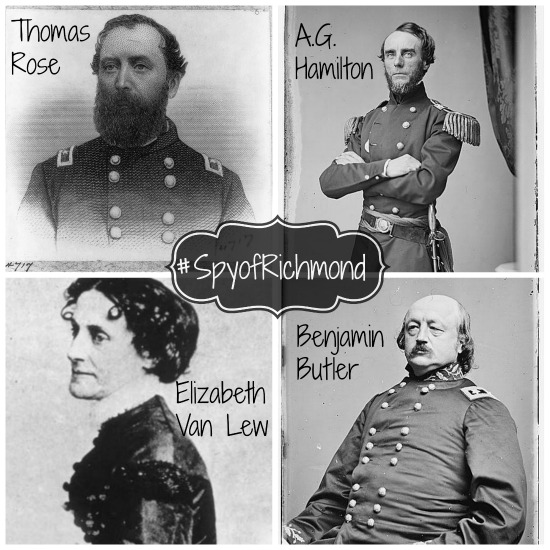

Afterward, she was left poor and abandoned by her community after it was revealed that she was a Union spy. Unfortunately, it wasn’t enough to cover the money she had already spent operating a spy ring of more than a dozen people she had largely exhausted her inherited wealth during the Civil War. Grant even gave Van Lew money for her services to the Union. “You have sent me the most valuable information received from Richmond during the war,” he reportedly told her.

“Most generally our reliable news is gathered from negroes, and they certainly show wisdom, discretion and prudence, which is wonderful.”Īs the war came to a close, in 1865, Van Lew was thanked personally by Union General Ulysses S. “When I open my eyes in the morning, I say to the servant, ‘What news, Mary?’ and my caterer never fails!” Van Lew wrote. However, Van Lew’s diary entries imply that Bowser’s reports were critical in helping the Union navigate their way towards victory during the war. There’s not much information as to what Bowser was able to report back as a spy, as all of her dispatches to Van Lew were destroyed out of fear that they would lead to severe repercussions. Equipped with a photographic memory, she was a troublesome spy to have behind enemy lines. There, she swept and dusted in the nooks and crannies of Davis home, reading the plans and documents that were laid out or hidden in desks, and reporting her findings to Van Lew.

At the end of Richards’ education, Van Lew dispatched her as a missionary to the West African nation of Liberia in 1855. Bowser was given special treatment from the time she was baptized as an infant at the family’s church, and was sent by Van Lew to the North, possibly Philadelphia, to receive a formal education. Believed to have been born between 18, Richards remained a servant for the Van Lew family after attaining her freedom. Varon in the biography Southern Lady, Yankee Spy: The True Story of Elizabeth Van Lew, A Union Agent in the Heart of the Confederacy.Īmong the many formerly enslaved people was young Mary Bowser, born Mary Jane Richards. “No pen, no book, no time can do justice to slavery’s wrongs, its horrors,” Van Lew wrote in her diary, as reported by author Elizabeth R.
#Richmond union spy network free
And as she got older, her stance against slavery only got stronger, despite the fact that her family owned enslaved workers.įollowing her father’s death in 1843, Van Lew and her widowed mother freed the enslaved people that the family owned, and Van Lew used the money from her father’s death-$10,000 (about $200,000 in today’s currency)-to buy and free the relatives of the enslaved people that her family had owned. After receiving her education as a teenager in Philadelphia, she began to see the injustice of slavery throughout the country. Van Lew was born in 1818 into an affluent family in Richmond.


 0 kommentar(er)
0 kommentar(er)
